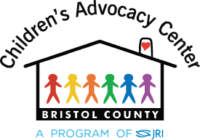There is a big difference between signs of sexual abuse and developmentally appropriate sexual-exploration behaviors.
Unusual Sexual Behaviors
Sexual behavior that’s outside the bounds of normal developmental play:
- Is clearly beyond the child’s developmental stage
- Involves threats, force, or aggression
- Involves children of widely different ages or abilities
- Provokes strong emotional reactions in the child
Behavioral Indicators of Sexual Abuse
Behavioral Indicators of Sexual Abuse in Younger Children
- Sadness, crying, anxiousness
- Short attention span
- Change or loss of appetite
- Sleep disturbances, nightmares
- Becoming excessively dependent
- A fear of home or a specific place, excessive fear of men or women, lacks trust in others
- Age-inappropriate sexual play with toys, self, others, sexually explicit drawings
- Bizarre, sophisticated or unusual sexual knowledge
- Reverting to bedwetting/accidents
- Dramatic behavioral changes, sudden non-participation in activities
- Poor peer relationships, self-image
- Overall poor self-care
- Feeling threatened by physical contact or closeness
- Coercing or forcing sexual contact with others
Behavioral Indicators of Sexual Behavior in Older Children
- Sudden lack of interest in friends or activities
- Fearful or startled response to touching
- Overwhelming interest in sexual activities
- Hostility toward authority figures
- Need for constant companionship
- Regressive communication patterns
- Academic difficulties
- Truancy and/or running away from home
- Recurrent physical complaints that are without physiological basis
- Lacks trust in others
- Unable to “have fun” with others
- Self-mutilation/”cutting”
- Suicide attempts
- Drug/alcohol misuse
- Poor personal hygiene
- Sex with multiple partners
Emotional Indicators of Sexual Abuse
- Increased separation anxiety
- Fluctuations from shy and withdrawn to unusually aggressive
- Emergence of intense, specific new fears
- Depression or suicidal thoughts
- Feeling helpless or powerless
- Grief, numbness, guilt, vulnerability
References:
Sexual Development and Behavior in Children. (2009, April 1). Retrieved April 1, 2015, from
http://www.nctsn.org/sites/default/files/assets/pdfs/sexualdevelopmentandbehavior.pdf
An Overview of Healthy Childhood Sexual Development (2013). Retrieved April 1,2015 from http://www.nsvrc.org/sites/default/files/saam_2013_an-overview-of-healthy-childhood-sexual-development.pdf
REMEMBER:
YOU
are the first line of defense in protecting your child from sexual abuse
